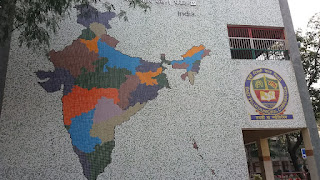”Receiving foreign donations cannot be an absolute or even a vested right," the apex court said.
"There is no restriction regarding utilisation of the funds only through that (primary) FCRA account. For, it is open to the recipient to operate multiple accounts in other scheduled banks for its utilisation", the bench observed.
New Delhi
This can be seen as a setback to the NGO lobby, especially those thriving on foreign fundings and often indulge in questionable activities like political protests and conversion.
The Supreme Court on Friday upheld the validity of the Foreign Contribution (Regulation) Amendment Act, 2020, saying it’s open to a sovereign democratic nation to completely prohibit acceptance of foreign donations.
The court was categorical that sovereignty and integrity of India ought to prevail.
The judges noted that there is no "paucity of donors" in India and asked charitable organisations and NGOs to seek donations from within the country, obviating the influence of foreign countries owing to foreign contributions.
“It is open to the State to have a regime which may completely prohibit receipt of foreign donation, as no right inheres in the citizen to receive foreign contribution (donation),” a bench of Justices A M Khanwilkar, Dinesh Maheshwari and C T Ravikumar observed.
The bench was hearing on the constitutional validity of the Foreign Contribution (Regulation) Amendment Act (FCRA), 2020, which imposes 'several new conditions on the receipt and use of funds by the NGOs'.
The new provisions of the law also make it mandatory for the NGOs and 'charitable bodies' to receive foreign funds only in an SBI account.
The court opined that citizens 'do not have any right' to receive foreign contributions and allowing the same is a matter of State policy. Meaning the government of the day has the right to decide on the same.
An FCRA license is mandatory to receive foreign donations in India.
The official stand of the Union Ministry of Home is that the Foreign Contribution Regulation Act (FCRA) norms are liable to be reviewed from time to time.
In 2015, the Modi government canceled the FCRA licenses of about 10,000 organizations including Green Peace, Ford Foundation and some 20 Christian organizations. Another 1,807 NGOs lost theirs in 2019.
In 2020, a government order said these organizations will not be eligible to apply for a fresh license for a period of three years.
Last year too, the government took actions.
A Bench led by Justice A M Khanwilkar—which had reserved its verdict on three petitions challenging various provisions of FCRA Amendment Act on November 9, 2021, - said there was no absolute right to receive foreign contribution.
”Receiving foreign donations cannot be an absolute or even a vested right," the apex court said.
"By its very expression, it is a reflection on the constitutional morality of the nation as a whole being incapable of looking after its own needs and problems,” it said, adding allowing liberal foreign funding can have a material impact on socio-economic structure and polity of the country.
The Bench declared that the amended sections 7, 12(1A), 12A, and 17 of the 2010 Act, were “intra vires” the Constitution and the principal Act even as it read down Section 12A.
The Bench interpreted Section 12A permitting the key functionaries or office-bearers of NGOs, who are Indian nationals, to produce Indian passports for the purpose of their identification.
The top court said “the strict regime had become essential because of the past experience of abuse and misutilisation of the ‘foreign contribution’ and cancellation of certificates of as many as 19,000 registered organisations on the ground of being grossly non-compliant.”
It’s open to a sovereign democratic nation to completely prohibit acceptance of foreign donations on the ground that it undermines the constitutional morality of the nation, the bench said.
It is also indicative of the nation being incapable of looking after its affairs and the needs of its citizens.
Noting that receiving foreign donations can’t be an “absolute or even a vested right”, the Bench said no one can be heard to claim a vested right to accept the foreign donation because the theory of the possibility of the national polity being influenced by foreign contribution is 'globally recognised'.
There were three petitions—two of which challenged the validity of the amendment and the third one demanded stricter enforcement of the new FCRA norms that required a primary FCRA account to be opened exclusively in an SBI Main Branch in New Delhi.
Care and Share Charitable Trust chairman Noel Harper and Jeevan Jyoti Charitable Trust had challenged the amendment of FCRA for alleged violation of Articles 14, 19 and 21 of the Constitution.
They had contended the compulsion to open an account with an SBI Branch was arbitrary and violated the right to equality and served no reasonable purpose.
The government of India had defended the amendment, saying it aimed to check fraudulent transfer of funds and misuse of foreign money to influence democratic polity and public institutions.
The Ministry of Home Affairs(MHA) had filed an affidavit in the apex court, stating that the Foreign Contribution (Regulation) Act passed by Parliament lays down a clear legislative policy of strict controls over foreign contributions for certain activities in the country and the manner in which they are utilised by the beneficiaries.
ends





No comments:
Post a Comment